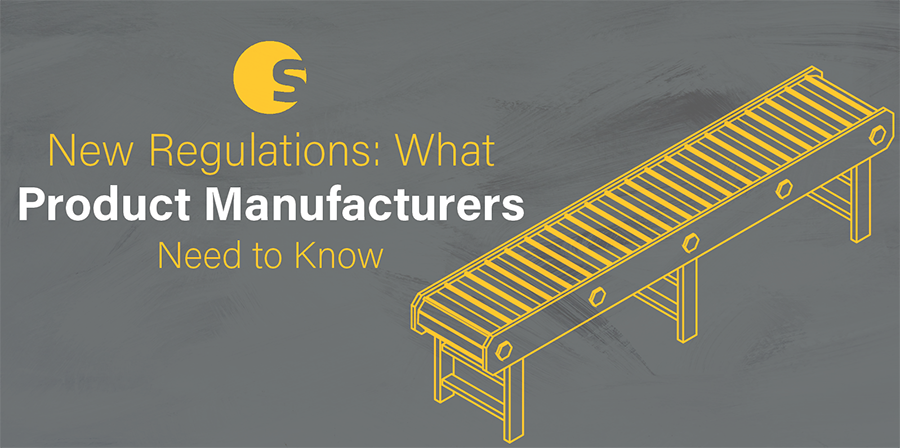After a year of confusion and change, The Golden State has finally adopted permanent regulations for the industry. This is a bittersweet victory for many California operators as they now have a stable set of rules to follow; but many are still left wanting more. And in that same vein, making changes to the new rules will now be a longer and more arduous process than before.
If you’re still wondering what the new CDPH regulations have changed for your business, don’t worry. I’ve done the hard work and identified a few things you should know for cannabis manufacturers in California:
Temporary licenses are being phased out
Temporary licenses will soon be a thing of the past. As of January 1, no agency in California will issue temporary licenses to cannabis businesses. Existing temporary licenses will be valid until they expire, generally 120 days after their issuance. Additionally, the Department of Public Health will no longer offer extensions for these licenses.

Current temporary licensees will be able to get a provisional license from the Department, so long as they have already submitted an application for an annual license. Annual license applicants who weren’t able to get a temporary license before the end of 2018, will not be able to qualify for a provisional license. You’ll have to wait until your application is approved to begin operations.
Additionally, while temporary licensees are not required to use the track-and-trace system, annual and provisional licensees are. If you are still operating on a temporary license and are not yet using the track-and-trace system, it might be a good idea to begin the process of transitioning to the system soon.
Contract manufacturing will be allowed

When the agencies dropped an updated version of their proposed regulations back in October, there was a lot of concern about what appeared to be a ban on white labeling, also known as contract manufacturing. This is a common practice that allows manufacturers to produce and package products on behalf of another business, such as an out-of-state company or celebrity brand.
The new rules seem to allow contract manufacturing, but with a few restrictions. Unlicensed brands won’t be allowed to run the show, but will be able to contract the use of their intellectual property to licensed businesses for a share of the profits. White labeling manufacturers will need to disclose contracts with such companies, identifying them as financial interest holders in the business.
Manufacturers can label dried flower and pre-rolls
Along with distributors and cultivators, manufacturers in California are now allowed to roll and package pre-rolls and dried cannabis flower. The products will need to meet the packaging and labeling restrictions the Department has added to the new regulations before being released for distribution.
Child-resistant packaging won’t be required until 2020

The new CDPH regulations made a few changes to the packaging and labeling requirements for cannabis products as well. The most significant change is the delay on requiring products to be packaged in child-resistant packaging before being released to a distributor. Throughout 2019, cannabis products that are not placed in child-resistant packaging can be placed in child-resistant exit packaging when sold to consumers. However, effective Jan. 1, 2020, all products will need to be in child-resistant packaging when released to distributors.

Comments: 2
Hey there, i really appreciate you summarizing this for everyone. If you could please help me understand a little bit better about the white-labeling for currently unlicensed brands in the state of California, I would greatly appreciate it.
My question is regarding the part where it says that manufacturers will have to disclose contracts with such companies, who do we disclose that to? CDPH?
Also by brands allowing their manufacturers to use their IP to manufacture the brand, what does that entail for the manufacture? How does the profit sharing need to work? Is there a standard or however we strike the deal?
Hello! While I am not an attorney, and we recommend speaking to an attorney for official guidance on this issue, I’ll try to provide a little more clarification here. Essentially, the agencies are trying to prevent licensed cannabis businesses from conducting commercial cannabis activities with non-licensed entities. White labeling can still occur under a couple of scenarios, as long as the proper disclosures are made on the business’ license application to the CDPH, or their applicable governing agency.
If a brand-owner is participating in the direction, control, or management of the licensed cannabis business (this includes dictating standards and specifications of a product), or if the brand-owner is licensing the brand’s intellectual property for more than 20% of the business’ profits, the brand-owner is considered an “owner” of the licensed cannabis business and must be disclosed as such on the license application, regardless of their actual ownership interest in the business. If the brand-owner is not participating in the direction, control, or management of the licensed cannabis business, and is instead licensing the brand’s intellectual property for a share less than 20% of the licensed cannabis business’ profits, the brand owner is considered a “financial interest holder” and must be disclosed as such on the license application for the cannabis business.
I hope this clears up any confusion! If you have any further questions, feel free to reach out to me: tyler@simplifya.com! Have a nice day!